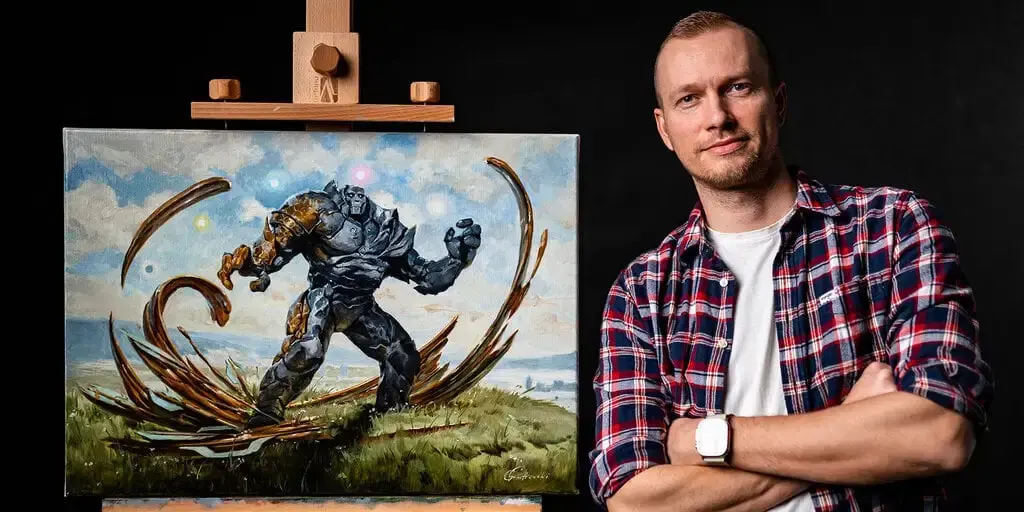Greg Rutkowski, a digital artist known for his surreal style, opposes AI art but his name and style have been frequently used by AI art generators without his consent. In response, Stable Diffusion removed his work from their dataset in version 2.0. However, the community has now created a tool to emulate Rutkowski’s style against his wishes using a LoRA model. While some argue this is unethical, others justify it since Rutkowski’s art has already been widely used in Stable Diffusion 1.5. The debate highlights the blurry line between innovation and infringement in the emerging field of AI art.



His art was not “stolen.” That’s not an accurate word to describe this process with.
It’s not so much that “it was done before so it’s fine now” as “it’s a well-understood part of many peoples’ workflows” that can be used to justify it. As well as the view that there was nothing wrong with doing it the first time, so what’s wrong with doing it a second time?
pirating photoshop is a well-understood part of many peoples’ workflows. that doesn’t make it legal or condoned by adobe
I don’t know what this has to do with anything. Nothing was “pirated”, either.
i’m not making a moral comment on anything, including piracy. i’m saying “but it’s part of my established workflow” is not an excuse for something morally wrong.
only click here if you understand analogy and hyperbole
if i say “i can’t write without kicking a few babies first”, it’s not an excuse to keep kicking babies. i just have to stop writing, or maybe find another workflow
The difference is that kicking babies is illegal whereas training and running an AI is not. Kind of a big difference.
did you click the thing saying that you understand analogies?
You’re using an analogy as the basis for an argument. That’s not what analogies are for. Analogies are useful explanatory tools, but only within a limited domain. Kicking a baby is not the same as creating an artwork, so there are areas in which they don’t map to each other.
You can’t dodge flaws in your argument by adding a “don’t respond unless you agree with me” clause on your comment.
Yes, it was.
One human artist can, over a life time, learn from a few artists to inform their style.
These AI setups are telling ALL the art from ALL the artists and using them as part of a for profit business.
There is no ethical stance for letting billion dollar tech firms hoover up all the art ever created to the try and remix it for profit.
No, it wasn’t. Theft is a well-defined word. When you steal something you take it away from them so that they don’t have it any more.
It wasn’t even a case of copyright violation, because no copies of any of Rutkowski’s art were made. The model does not contain a copy of any of the training data (with an asterisk for the case of overfitting, which is very rare and which trainers do their best to avoid). The art it produces in Rutkowski’s style is also not a copyright violation because you can’t copyright a style.
So how about the open-source models? Or in this specific instance, the guy who made a LoRA for mimicking Rutkowski’s style, since he did it free of charge and released it for anyone to use?
Yes copies were made. The files were downloaded, one way or another (even as a hash, or whatever digital asset they claim to translate them into) then fed to their machines.
If I go into a Ford plant, take pictures of their equipment, then use those to make my own machines, it’s still IP theft, even if I didn’t walk out with the machine.
Make all the excuses you want, you’re supporting the theft of other people’s life’s work then trying to claim it’s ethical.
They were put on the Internet for that very purpose. When you visit a website and view an image there a copy of it is made in your computer’s memory. If that’s a copyright violation then everyone’s equally boned. When you click this link you’re doing exactly the same thing.
By that logic I can sell anything I download from the web while also claiming credit for it, right?
Downloading to view != downloading to fuel my business.
No, and that’s such a ridiculous leap of logic that I can’t come up with anything else to say except no. Just no. What gave you that idea?
Because this thread was about the companies taking art feeding it into their machine a D claiming not to have stolen it.
Then you compared that to clicking a link.
Yes, because it’s comparable to clicking a link.
You said:
And that’s the logic I can’t follow. Who’s downloading and selling Rutkowski’s work? Who’s claiming credit for it? None of that is being done in the first place, let alone being claimed to be “ok.”